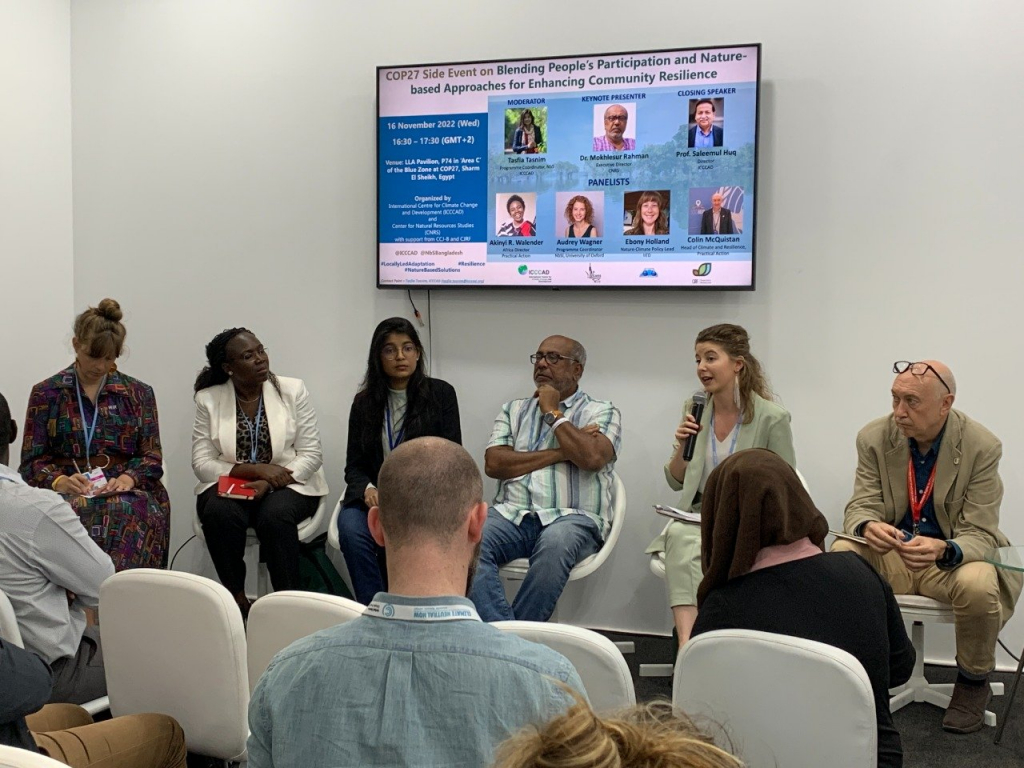NbSI take part in COP27 panel event ‘Blending People’s Participation & Nature-based Approaches for Enhancing Community Resilience’

In week two of COP27 a variety of COP side events were hosted alongside the build in momentum as negotiations ran on what terms, issues and language would make it into the final cover decision text.
The event ‘Blending People’s Participation and Nature-based Approaches for Enhancing Community Resilience’ was hosted by ICCCAD and the Center for Natural Resources Studies (CNRS), led by NbS Bangladesh team member Tasfia Tasnim. Community and ecosystem resilience happens where there is mix of locally led adaptation actions as well as nature-based approaches. This Locally Led Adaptation Pavilion panel discussion led by ICCCAD, CNRS and the Centre for Climate Justice-Bangladesh (CCJ-B), with support from the Climate Justice Resilience Fund, explored how local communities’ participation is crucial to implement nature-based solutions and strengthen socio-ecological resilience in the climate-disaster prone areas of Bangladesh.
NbSI’s Audrey Wagner and Tasfia Tasnim, and ICCCAD Director Professor Saleemul Huq discussed the importance of community participation and NbS for resilience to climate change. Audrey outlined how NbS can increase resilience to climate change by reducing exposure and sensitivity to climate impacts and increasing adaptive capacity: “Participatory NbS can strengthen the social fabric and contribute to enhancing resilience”.
Professor Huq highlighted that “the locally led adaptation community of practice needs to link up with the NbS community of practice. And I hope that those of us who are here at COP27 can take this forward to next year”.




